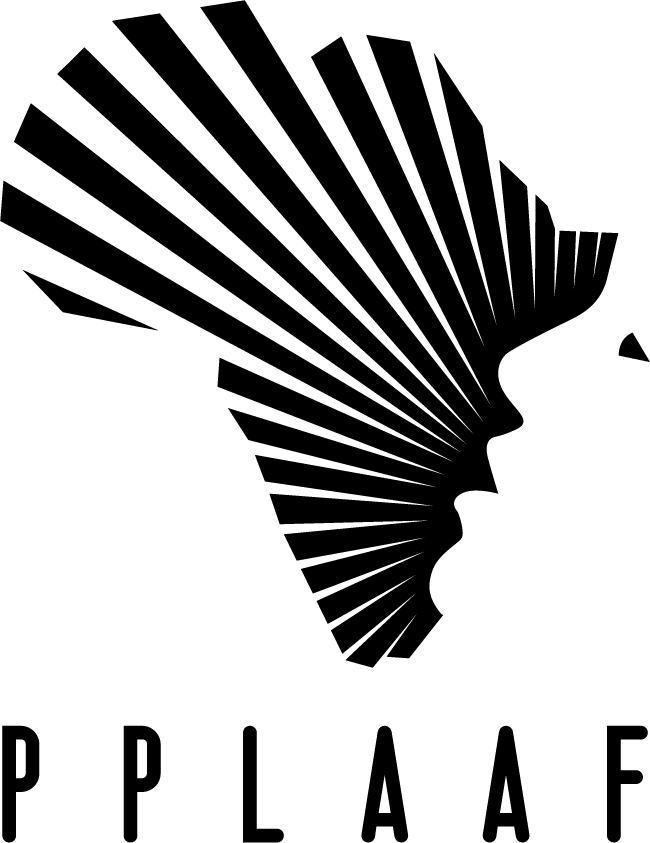“This is the anti-corruption movement of the future”
This is how Ms Thandeka Gqubule-Mbeki explained the importance of whistleblowing as a critical anti-corruption tool. As highlighted in the “Indicators of a Holistic Whistleblowers Support and Protection Ecosystem – Whistleblowing as an Anti-Corruption Tool” forum, whistleblowers suffer emotional, physical and financial distress due to acts of retaliation after blowing the whistle.
The Forum was part of the Platform to Protect Whistleblowers in Africa’s (PPLAF) inaugural Whistleblower Protection Week, held in collaboration with the Friedrich Naumann Foundation (FNF) and the Gordon Institute of Business Science (GIBS) in Johannesburg from 5 to 7 December 2022. The Forum was hosted by Ms Kavisha Pillay of Corruption Watch, an anti-corruption non-profit, and a member of the National Anti-Corruption Council (NACAC). Panellists included Ms Gqubule-Mbeki, also a member of NACAC, and Mr Leonard Lekgetho from the Special Investigating Unit (SIU), an independent government agency tasked with investigating state maladministration and corruption.
The panellists discussed what is lacking in the whistleblowing ecosystem with regard to legislation and institutional arrangements as well as recommendations for improvements to the ecosystem.
PDA and Institutional Reporting Mechanisms
Ms Gqubule-Mbeki argued that the Protected Disclosures Act (PDA), the law protecting employees and workers who have blown the whistle, is rudimentary. It assumes that the interests of the institution, whether public or private sector, are aligned with the interests of the whistleblower. However, the PDA along with other legislation and court processes can be misused to frustrate whistleblowers by relying on technical aspects. Furthermore, the PDA does not protect everyone who reports wrongdoing and is limited to the employment context.
Speaking about the various institutions that can report protected disclosures under the PDA, Ms Gqubule-Mbeki highlighted that this allows whistleblowers to “forum shop”. The result is that when one institution does not take responsibility, it refers to the next. Even when institutions act on protected disclosures, they work in silos, resulting in uni-dimensional redress to matters that may need a multi-dimensional approach from a number of institutions. Therefore, there should be a mega-agency to deal with corruption. In light of this, Mr Lekgetho offered a contrasting view, as he found that when one agency does not investigate the issue, then a whistleblower can go to the next one to seek redress. Risking exposure to those who may want to cause harm to the whistleblower.
Retaliation and Support
In order to combat the harm suffered by whistleblowers, Ms Gqubule-Mbeki highlighted the need for legal reform in order to criminalise retaliatory action. Once a protected disclosure is made, then “all bets are off” until such a time the disclosures have been investigated and the corrupt prosecuted. It should be criminalised to vilify whistleblowers either through criminal or civil claims or be attacked in smear campaigns.
Mr Lekgetho emphasized the importance of whistleblowers, as many of the SIU’s most imminent cases came from whistleblowers. The SIU has tried to create an environment where whistleblowers feel safe to be interviewed and if they need protection then they are incorporated into the Witness Protection Programme. The challenge is that witness protection can only be made available if it is a criminal matter and people must be ready to be accommodated. Further, whistleblowers need to be taught how to conduct themselves as they often want to be involved in the investigation and in this way, they may expose themselves. If the matter goes to Court, then arrangements can be made with the Judge that the identity of the witness is concealed. In general, the SIU is very conscious of the safety and security of whistleblowers. At this juncture, Mr Lekgetho also reminded the participants that investigators were also threatened, however, investigators know they had signed up for that as part of the job.
Mr Lekgetho further highlighted the SIU’s collaborative relationship with civil society in that the SIU has worked well with organisations such as Corruption Watch, Section 27 and OUTA. Some people feel more comfortable reporting corruption to civil society organisations rather than the police and the SIU can leverage that and achieve more success.
Some progress has been made but how do civil society and activists make sure that they continue making progress? Mr Lekgetho allayed concerns that legislation is embedded to cover all aspects of corruption and whistleblowing, even if there is a change politically. Ms Pillay added that the National Anti-Corruption Strategy is policy and it will remain until there is a change in government.
Compensation for Whistleblowers
Ms Pillay then turned to the uncomfortable discussion of compensation. Ms Gqubule-Mbeki argued that although compensation presents a moral quandary, South Africa needed a system similar to the American Frank Dodd System. However, such a system needs to be supported by a willing legal fraternity that can represent whistleblowers vigorously. Mr Lekgetho opined that it might be difficult to know who to compensate, as many may come forward with the same information. He also raised concerns about whether it will create a “job market” and a way of peddling for money. However, he believes that there is merit in compensation when whistleblowers were fired for whistleblowing but if it is just compensation for people giving information then this may create a dilemma. Ms Pillay offered an alternative that perhaps the issue of compensation could be treated as an employee has suffered an injury while on duty and claim through the Compensation Fund.
Recommendations
The Forum ended with Ms Pillay asking the panellists and the audience what they thought were the short-term priorities and there was consensus among the panellists and the audience for law reform. Ms Gqubule-Mbeki highlighted the need for a whistleblower summit to be held and for international guests such as the Special Rapporteur on Human Rights Defenders to be invited. To bolster the protection of whistleblowers, there should be a similar system such as the prison system whereby a retired judge visits whistleblowers to ensure their human rights are protected.
Other recommendations included the need for fast and efficient investigations to minimise the trauma experienced by whistleblowers during the reporting process. In order to address the issue of forum shopping, there is a need to get all institutions capacitated under the PDA and to get a conversation going with the various institutions.
In closing, Ms Gqubule-Mbeki rallied the audience that “whether there is no Ramaphosa or NACAC”, this is the anti-corruption movement of the future. She is grateful for the existence of this movement as it does not necessarily happen in other countries.
PPLAAF is a non-governmental organisation established in 2017 to protect whistleblowers, as well as to advocate and engage in strategic litigation on their behalf when their revelations deal with the general interests of African citizens.
For more information on PPLAAF, please visit:
PPLAAF’s website: https://pplaaf.org
Facebook: https://www.facebook.com/PPLAAF/
Twitter: @pplaaf
Email: Info@pplaaf.org
For media inquiries, please contact:
Email: gemma@pplaaf.org
Phone: +27 66 458 3372




